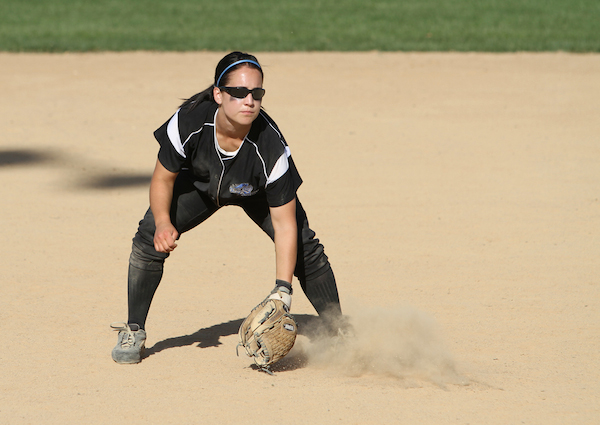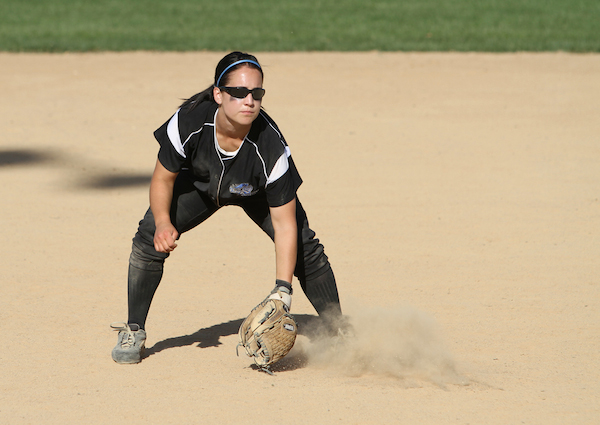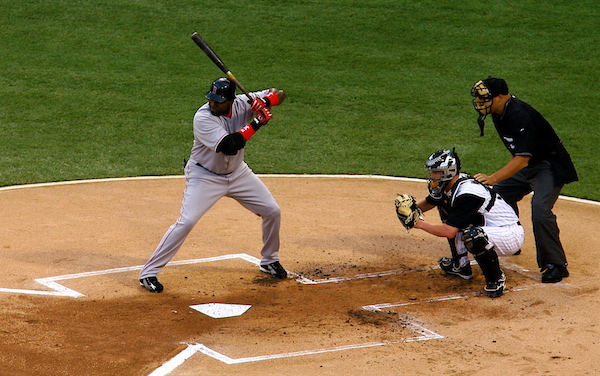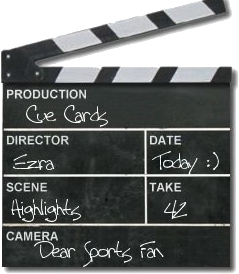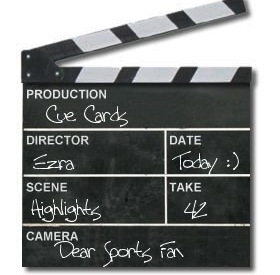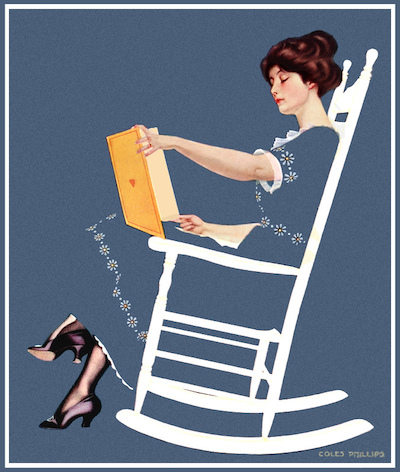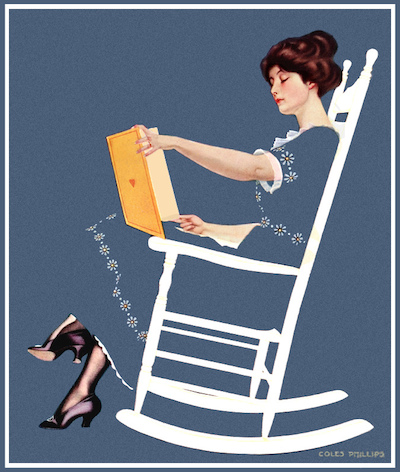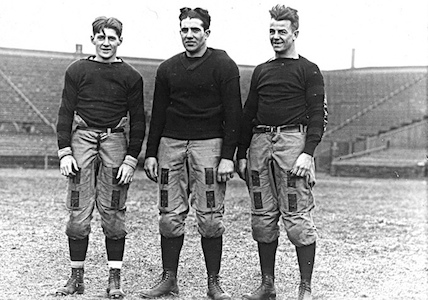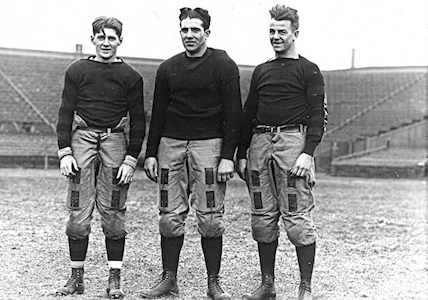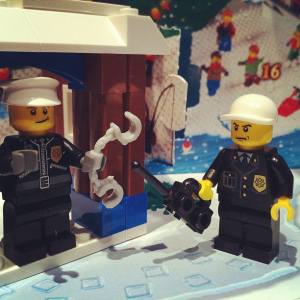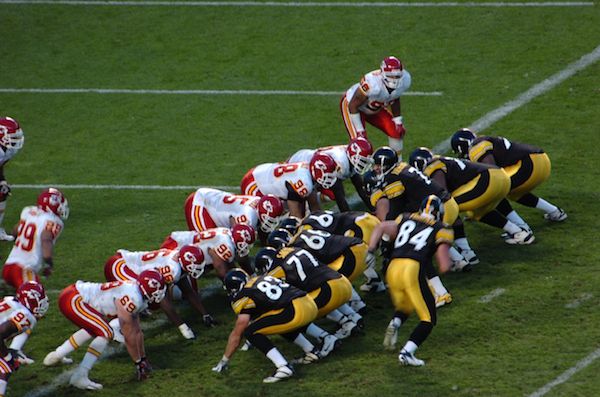Dear Sports Fan,
What are infielders in baseball or softball? Doesn’t everyone play in the field?
Thanks,
Jacqueline
— — —
Dear Jacqueline,
Infielders in baseball or softball are players who play any one of these four positions: first base, second base, third base, or shortstop. Each of these positions have their own unique set of responsibilities which favor particular skills. With some exceptions, of course, the positions seem to attract or mold the personalities of people who play them in distinctive ways. The wrinkles of each position often shape the roles players play when their team is up to bat in addition to when they’re on defense. Although some major league players shift from position to position, most stick to one spot for the majority of their careers. As an added bonus, infielders in baseball were the focus of one of the funniest comedy bits of all time. Starting with first base and moving to third, we’ll describe each position in detail. For describing where things happen, we’ll use the perspective of the batter. As we go through the positions, I’ll notate the names of the players on Abbot and Costello’s team.
First Base
First basemen (the eponymous Who) stand farthest to the right as seen from the batter’s point of view. Their primary defensive responsibility is to bustle over to their base when the ball is hit into play and be their to catch the ball if one of their teammates gets it in time to try to throw the runner out at first. If the first baseman catches the ball while she is touching first base before the batter runs to first base and touches it himself, the batter is out. A throw to first base is the most common outcome from a hit and there are often reasonably close calls between the runner getting there first and the first baseman catching the ball. The first basemen plants one foot on his base and reaches, stretches, lunges, for the ball. Shaped by this requirement, the first baseman is the biggest of the infield players. He doesn’t need to run very much and every inch of height and wingspan help him reach the ball a split second earlier or snag errant throws that might go over a smaller player’s head. This has implications for batting too. Since size is an advantage at first base in a way it often isn’t at other positions, first basement are often big power hitters who aim for home runs whenever they can. After all, if you get a home run, you don’t have to run as fast. Playing first base is a challenging position. It’s hard to hide there because every infield hit is going to involve you catching the ball.
Second Base
Second base (What) is the least glamorous of the infield positions. Before the ball is hit, second basement usually line up between second base and first or just to the right of center from the batter’s perspective. They are in one of the least likely spots for a ball to be hit (assuming the majority of batters are right-handed) and their job is easiest when a ball does come to them. The throw from where a second baseman lines up to first base, where the play most frequently is, is quite short. The one truly exciting thing that a second baseman does is play a vital role in most double plays. A double play is when a defensive team is able to get two outs on a single hit. This usually happens when there is a runner on first. Because two runners cannot occupy one base at the same time, the runner at first is forced to run to second as her teammate runs from the batters box to first base. If the defensive team can get the ball, throw it to second base and tap their foot on second base while holding the ball, they can then try to throw the ball to first base and beat the runner there too, making for two outs. There are all types of strange ways to make this happen, but usually it involves someone throwing the ball to the second baseman, who stands on second base, catches the ball, and whirls around to throw it to first base. Runners headed to second base in this situation will slide at the second baseman dangerously, trying to break her nerve (or her ankles) to prevent the throw to first. As a result, second basemen are often small, agile people who have become very good at leaping out of the way while throwing accurately. Second baseman use their speed on offense too, often hitting first or second in the order.
Shortstop
The shortstop (I don’t give a darn) is the most glamorous position in the infield and arguably the whole team. Shortstops have the most balls hit at them and they are hit the hardest. Shortstops are athletic and acrobatic, leaping or diving to catch or even just get in the way of balls hit between second and third base. Once they get their hands on the ball, they have the second farthest throw in the infield from their position to first base. Often, instead of throwing to first, they might flip the ball to the second baseman to start a double play or just sprint over there and touch the base themselves. Shortstops are proud of their position and rightly so. In any casual game of baseball or softball, the best athlete in the group plays shortstop by default. Shortstops can have such an impact on defense that they can sometimes get away with being a weaker hitter compared to other positions.
Third Base
Third base (I don’t know) takes guts and a rocket arm. Third basemen line up closest of any infielder to the batter, so when a ball comes to them, it gets there fast! Playing third base, even in a rec-league softball game, can be a harrowing experience because so many of the hits come at you so quickly. Once a third baseman has successfully fielded a ball, they have the farthest throw to get it to first base. If you imagine a baseball field as a triangle between home plate, first base, and third, the line from third to first is the hypotenuse. On a major league baseball field, the distance from third to first is over 125 feet! When a third basemen stops being able to reliably make that throw, because of physical limitations or mental blocks, he or she has got to move to another position.
The infield positions are all unique and their peculiarities shape how baseball is played. Personality and physical attributes define who will be best playing which position. I hope this post has helped make the positions more understandable and baseball more enjoyable to play and watch.
Thanks,
Ezra Fischer

